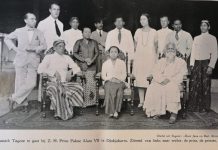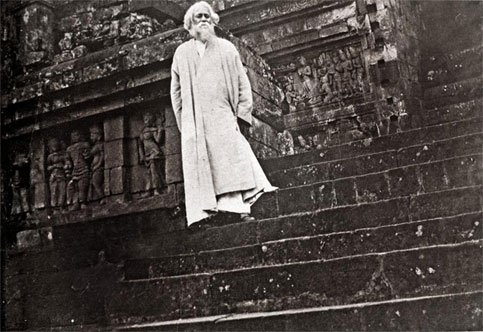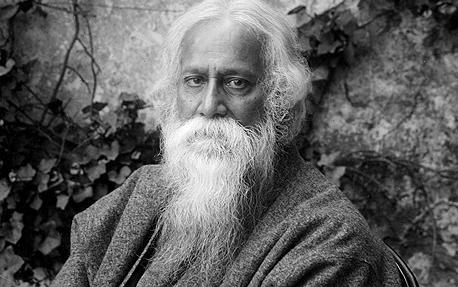(Transcription)
|
(Ms) Dr. Karuna Bhattacharya
|
BIDHAN NIWAS
|
|
(Retd) Pro Vice-Chancellor (Finance)
|
4 Bidhan Shishu Sarani
|
|
The Calcutta University
|
Flat N-6/W-2
|
|
CALCUTTA 700 054
|
|
|
Dial: 2337-7628
|
14 May 2001
(FOREWORD)
Mr. Rajat Das Gupta, an eminent Chartered Accountant by profession, is an ardent admirer of Rabindranath Tagore. In spite of his very busy schedule, he has devoted his time to translate the celebrated poems/songs of Tagore, who, it is interesting to note, proclaimed: “My mind does not agree to prepare the balance sheet of what I have got and what I have not” (ki peyechi ar ki paini tar hisab milate man mor nahe rajee). This aroused my curiosity to go through his translation and, to my surprise I find that that the translation does not only follow the original text, but at the same time, appears to be startlingly poetic.
In my opinion translating a poem is a difficult task, more difficult than writing one. In writing a poem we freely choose our words to express the thoughts to which we have direct access. But the translator has to choose words to express the thoughts of others and the thoughts expressed in a different language. It is really difficult. And translating Tagore’s poems is specially so because his choice of words is very specific having wide dimensions in the field of meaning. In every ripple of our emotions, we get a significant touch of Tagore’s writing, be it a poem or song or a piece of prose. It simply needs to be read and re-read and the more we read it, the more rich becomes our understanding of it, indicating a future without borders. It is, therefore, a difficult task, if not an impossible one, for any specific translation to explore the whole of Tagore’s intended meaning. In support of my contention, let me quote Tagore himself: “Thou hast made me endless, such is Thy pleasure” (Geetanjali).
Mr. Das Gupta has done this difficult task with credit. His choice of words displays the depth of his understanding of Tagore’s thoughts. Only a writer with exquisite sense of rhythm and inventive imagination can use words of one language to express the meaning of the words of another language as has been done by Mr. Das Gupta.
In the presentation there are translations of some lengthy pieces of Tagore’s literature which appear to me to be excellent. Among them, I like to name ‘Bandi Bir’ and ‘Samanya Kshati’ of the book ‘Katha’ written by Tagore in 1899 and ‘Janmadin’ of ‘Senjuti’ written in 1938. The translation of ‘Madhumay Prithibir Dhuli’ (‘Arogya’, 1941) also deserves special mention.
In some cases, however, the translation could, perhaps, be improved. The poem starting with ‘Sudhaona Kabe Kon Gan Kahare Karichinu Dan’ is translated as : “Ask not when which song, for whom I meant to belong,” The translation may sound very rhythmic, but, I am afraid, whether ‘belong’ can be accepted as an appropriate word in the context.
In the poem ‘Patralekha’ the sentence “…bole giyechchile tumi chithi lekha chai ekdin pare pare” has been translated as “And said, I must write every other day”. But writing of any sort is not ‘letter writing’ which has a special dimension. It would have been better if ‘letter writing’ had been specified here. The last part of the poem goes ‘….bhasar bhitare ami kanthaswar parine to dite, na thake chokher chhaya.’. The full connotation of the text, I think, cannot be captured by the shorthand expression ‘to tune up all I implore’ used in the translation
From the overall survey of the whole presentation, however, it appears to me to be a dedicated and successful effort. Mr. Das Gupta deserves our thanks as he fulfils the need for a comprehensive and faithful translation of Tagore’s poems to promote the interest of the scholars to discover the literary genius of Tagore by making his writings available to those who do not know Bengali. His translation, I hope, will enable them to enjoy some of the golden treasure of Tagore’s literature.
(Sd/- Dr. Karuna Bhattacharya)





